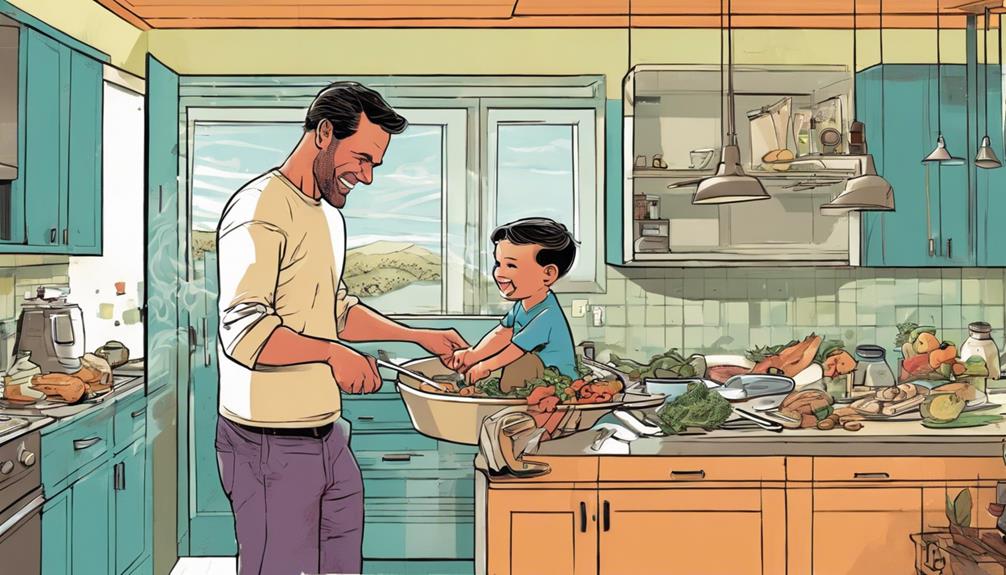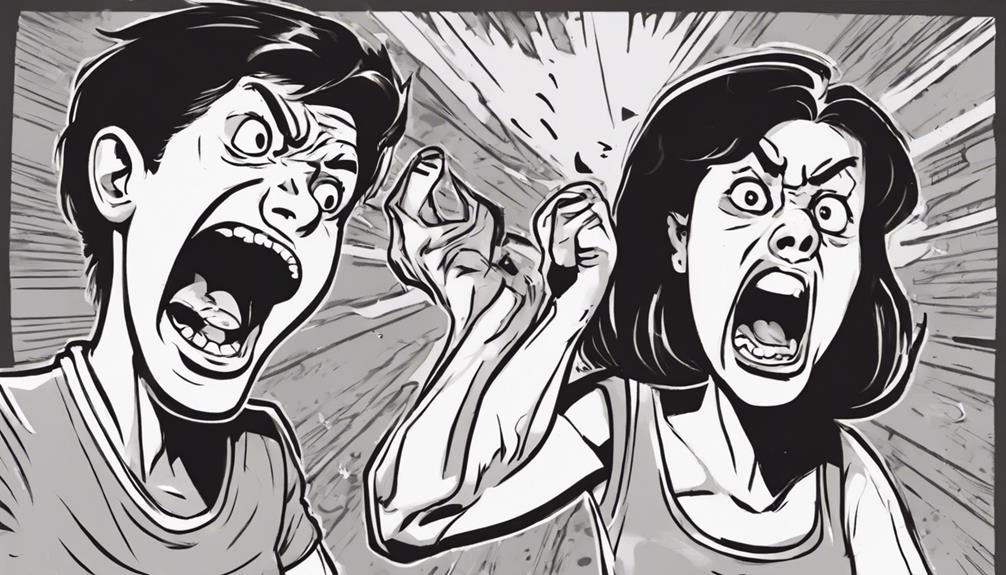The increase in stay-at-home dads signifies a shift in family dynamics, challenging traditional gender norms. More men are choosing to be primary caregivers, influenced by flexible work arrangements and shared parental leave options. Stay-at-home dads offer unique insights into child-rearing experiences, breaking stereotypes and promoting quality time with children. This trend reflects a changing societal view of fathers, contributing to a more balanced family dynamic and fostering gender equality in parenting. Exploring this growing phenomenon reveals the nuanced reasons behind the trend and its impact on society, gender roles, and work-life balance, showcasing diverse factors shaping men's decisions.
Key Takeaways
- Increasing number of stay-at-home dads challenging traditional gender roles.
- Evolving societal norms support men as primary caregivers.
- Economic factors like flexible working arrangements contribute to the trend.
- Stay-at-home dads provide valuable insights into modern parenting dynamics.
- Rise in shared parental leave options reflects a shift towards gender equality in parenting.
Changing Family Dynamics
With the increasing number of stay-at-home dads and evolving societal norms, changing family dynamics are becoming more prevalent in modern households. In recent years, there has been a noticeable shift towards men choosing to stay at home to care for their children while their partners pursue their careers.
This trend is evident in the rise of stay-at-home dads, with statistics showing a significant increase in men opting to take on the role of primary caregiver. As more men embrace this role, family structures are adapting to accommodate these changing dynamics.
The traditional notion of the mother being the primary caregiver is being challenged, leading to more diverse and flexible family arrangements that prioritize the well-being and development of children.
Economic Factors and Trends
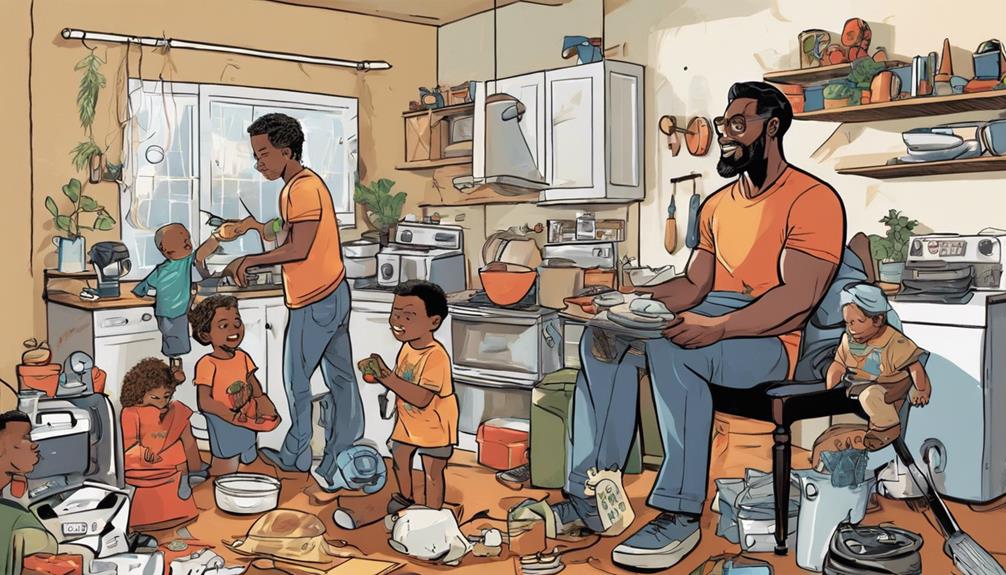
Given the increasing prevalence of stay-at-home dads and the shifting family dynamics, economic factors and trends are playing a significant role in shaping the landscape of modern households. With 42% of mothers in the US being sole or primary breadwinners in 2015, the number of stay-at-home dads is on the rise.
More men are opting to stay home and raise their families instead of pursuing traditional employment. Flexible working arrangements and shared parental leave options are becoming more common, influencing men's decisions. The appeal of actively participating in child-rearing and influencing their children's lives is a key motivator for many stay-at-home dads.
As societal attitudes shift, men are embracing the role of primary caregiver, contributing to the evolving dynamics of modern households.
Insights From Stay-At-Home Dads
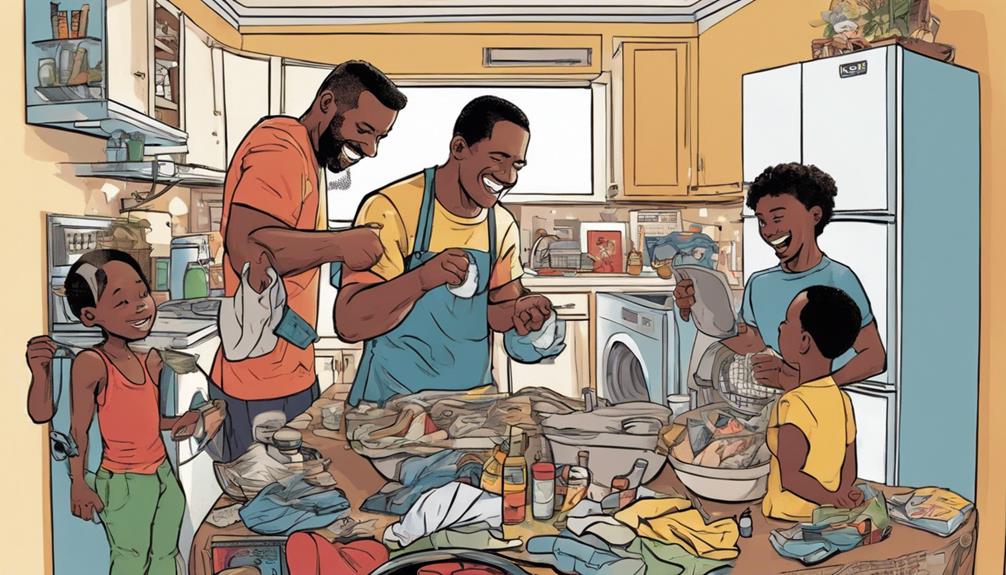
As the societal landscape continues to shift towards more inclusive parenting roles, stay-at-home dads are providing valuable insights into their experiences and motivations.
Many men choose to stay at home to break stereotypes, spending quality time with their children and positively influencing their lives. Some families find financial benefits with the mother working full-time, while others believe they are better suited to be the primary caregiver.
Attitudes have evolved, allowing men to nurture children as effectively as women. The satisfaction derived from being the primary carer is highlighted by the increasing number of stay-at-home dads.
The Daddilife community members share reasons for this choice, emphasizing the changing role of fathers in modern society and encouraging a broader perspective on parenting responsibilities.
Evolving Role in Society
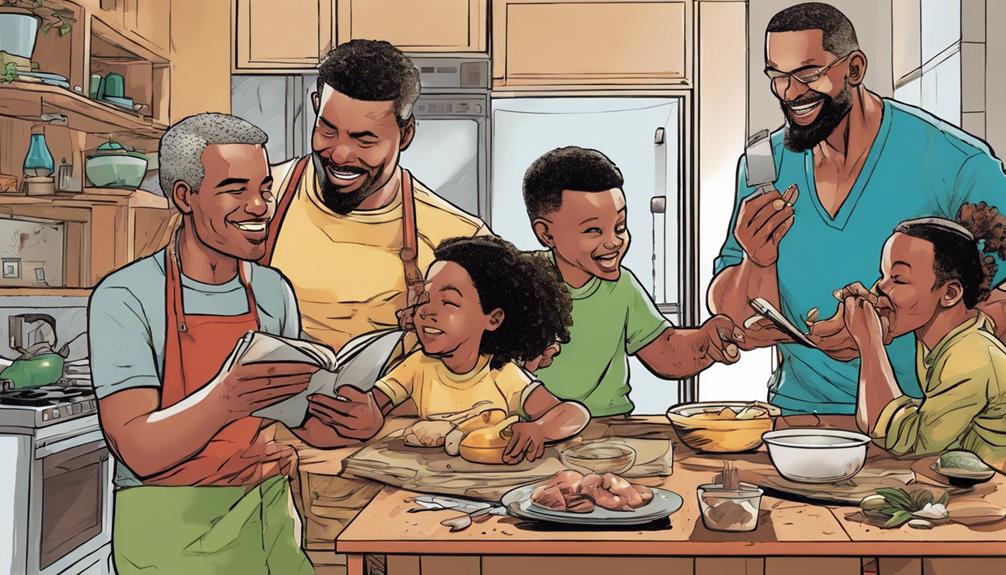
The increasing presence of stay-at-home dads reflects a shifting societal landscape where traditional gender roles are being redefined, highlighting a notable evolution in the role of fathers within modern society.
As more men choose to stay home and take on the primary caregiver role, the perception of fatherhood is changing. This evolution challenges outdated stereotypes and demonstrates a progressive shift towards gender equality in parenting responsibilities.
Stay-at-home dads are actively participating in child-rearing, nurturing, and household duties, contributing to a more balanced family dynamic. Society is gradually recognizing and accepting the valuable role these fathers play in their children's lives, promoting a more inclusive and diverse perspective on parenting.
The evolution of the stay-at-home dad role signifies a positive step towards a more equitable and modern society.
Engage With the Discussion
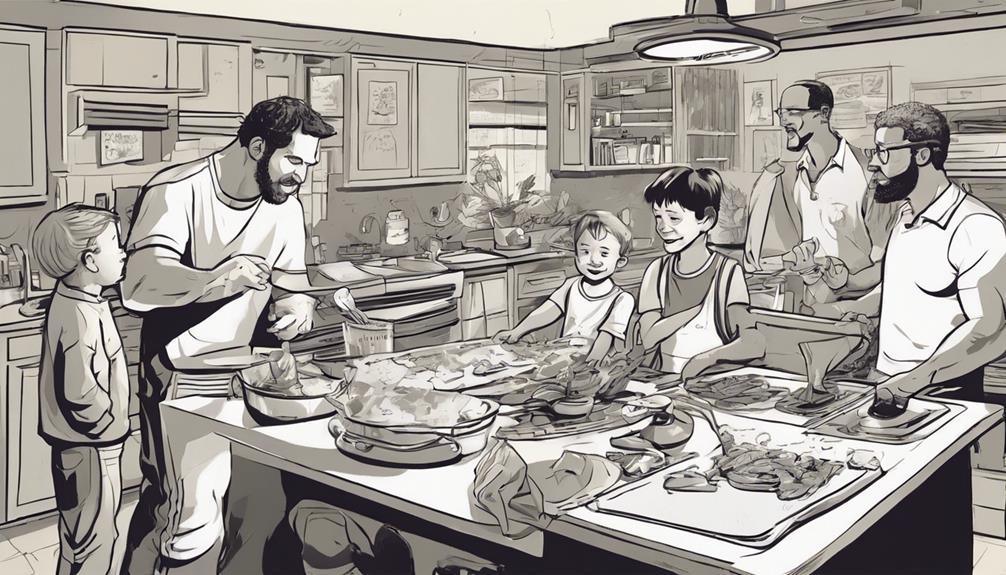
Participation in the ongoing dialogue surrounding the role of stay-at-home dads is essential for fostering a deeper understanding of the evolving dynamics within modern families.
Engaging with discussions about stay-at-home dads allows for a more nuanced exploration of the reasons behind this trend and its impact on society. By sharing perspectives, insights, and experiences, individuals can contribute to shaping societal attitudes towards gender roles, parenting, and work-life balance.
Encouraging open dialogue also enables the recognition of the diverse factors influencing men's decisions to become primary caregivers and the challenges they may face.
Through active participation in these conversations, a more inclusive and supportive environment can be created for all families, regardless of their chosen caregiving arrangements.
Frequently Asked Questions
How Do Stay-At-Home Dads Navigate Societal Judgments and Stereotypes?
Stay-at-home dads navigate societal judgments and stereotypes by challenging traditional gender roles, valuing their role as caregivers, embracing a nurturing role, and prioritizing family dynamics over societal expectations, contributing to the evolving landscape of parenting roles.
What Challenges Do Stay-At-Home Dads Face in Balancing Family and Personal Identity?
Balancing family and personal identity presents challenges for stay-at-home dads. Juxtaposing traditional roles with modern expectations, they navigate societal norms while nurturing their families. Striking a harmonious equilibrium between caregiver duties and individuality requires resilience and adaptability.
How Do Stay-At-Home Dads Contribute to Their Children's Development and Well-Being?
Stay-at-home dads contribute greatly to their children's development and well-being by providing consistent care, fostering emotional connections, and actively engaging in their upbringing. Their presence offers a unique parenting dynamic that positively impacts children's growth and overall happiness.
What Support Systems Are Available for Stay-At-Home Dads in Their Caregiving Role?
Exploring the caregiving domain, stay-at-home dads seek strong support systems like parenting groups, online forums, and workshops tailored to their unique role. These resources offer camaraderie, guidance, and empowerment to enhance their caregiving journey.
How Can Stay-At-Home Dads Promote Gender Equality and Redefine Traditional Family Roles?
Stay-at-home dads promote gender equality by challenging traditional family roles, fostering shared caregiving responsibilities, and breaking gender stereotypes. Their presence redefines societal expectations, encourages diverse family structures, and exemplifies that nurturing and caregiving are not bound by gender.
Conclusion
To wrap up, the rise of stay-at-home dads is a growing trend in contemporary society, reflecting a shift in traditional family dynamics.
One interesting statistic worth noting is that the number of stay-at-home dads in the United States has nearly doubled over the past two decades, reaching over 2 million in 2020.
This trend is driven by various factors, including changing economic circumstances and evolving perceptions of gender roles, emphasizing the increasing significance of caregiving responsibilities for men in modern families.

